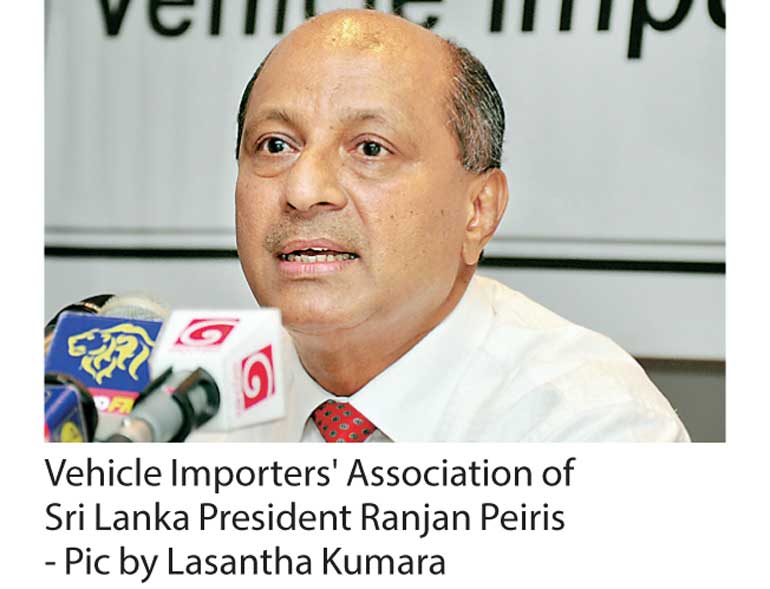Saturday Feb 28, 2026
Saturday Feb 28, 2026
Tuesday, 14 November 2017 00:00 - - {{hitsCtrl.values.hits}}

By Chathuri Dissanayake
Vehicle importers plan to lobby the Finance Ministry to revise the increase in unit tax imposed on vehicles with a 1,500 cc engine capacity, pushing the price of the vehicles falling under the category over Rs. 500,000. The Vehicle Importers Association of Sri Lanka (VIASL) is planning to meet Finance Ministry officials to discuss a possible reduction in the unit tax for the category, the association’s president Ranjan Peiris told the Daily FT.
Treasury Deputy Secretary S. Attygalla told the Daily FT-Colombo MBA Alumni Association post-Budget forum that the Government would amend the current proposal to make the tax concession applicable up to one year from the date of manufacture for all the changes to be applicable on a practical level.
While praising many of the new proposals and moves to impose new standards on vehicles on Sri Lankan roads, the association yesterday said it hoped that the Government would reconsider the increase in unit tax for 1,500 cc hybrid vehicles, a popular vehicle category in the country.
According to the 2018 Budget proposals, effective immediately, the tax paid on a 1,500 cc hybrid vehicle will increase by Rs. 750,000.
“Earlier imports were taxed under 1,000 cc or 1,500 cc, at a rate of Rs. 1,750 and Rs. 2,000 respectively. But after introducing the new category at 1,300 cc there has been a unit price revision. Now 1,300 cc is imposed as a unit tax of Rs. 2000, while the unit rate of 1,500 cc has been increased to Rs. 2,500, which has resulted in a steep increase,” Peiris said.
Continued on page 6
Vehicle...
The importers are lobbying for middle ground to reduce the increase, he said.
The association will ask the Government to reduce the unit tax to Rs. 2,250 which will cut the increase in taxes by 50%.
“These are a category of vehicles commonly used not just as a personal car but in the travel and tourism industry as well. A lot of taxi companies also use this car as it is a very economical model. If the tax increase remains the same these industries will be affected as well,” Peiris explained.
The increase will also affect government servants who have ordered vehicles to be imported through the concessionary motor vehicle permits issued to them by the Government.
“We are hoping that there will be a change in this as well, although we will not directly lobby for it. Many of the Government servants import vehicles through our members and they will not be able to cancel the order now. But the problem is the hike in taxes payable. There are many imports in Hambantota and some on the way but the customers has not accounted for the Rs. 750,000 tax hike. So there will be problems. It’s a large amount that many may not be able to absorb,” Peiris explained, adding that the Government would approach the issue favourably.
The VIASL also said that although there has been a reduction of duty on Indian-made car models such as the Alto, consumers may not see a price drop due to new standard requirements imposed through the Budget.
“The Budget has imposed new standards requiring cars to have airbags and an anti-lock braking system, which are welcome moves. The inclusion of these features is likely to increase the cost of models like the Alto as the models imported into country do not have those,” Peiris explained.
With the tax imposed on Indian and Japanese cars being similar, customers may be able to have a better choice and select a model which delivers value for money, he explained.